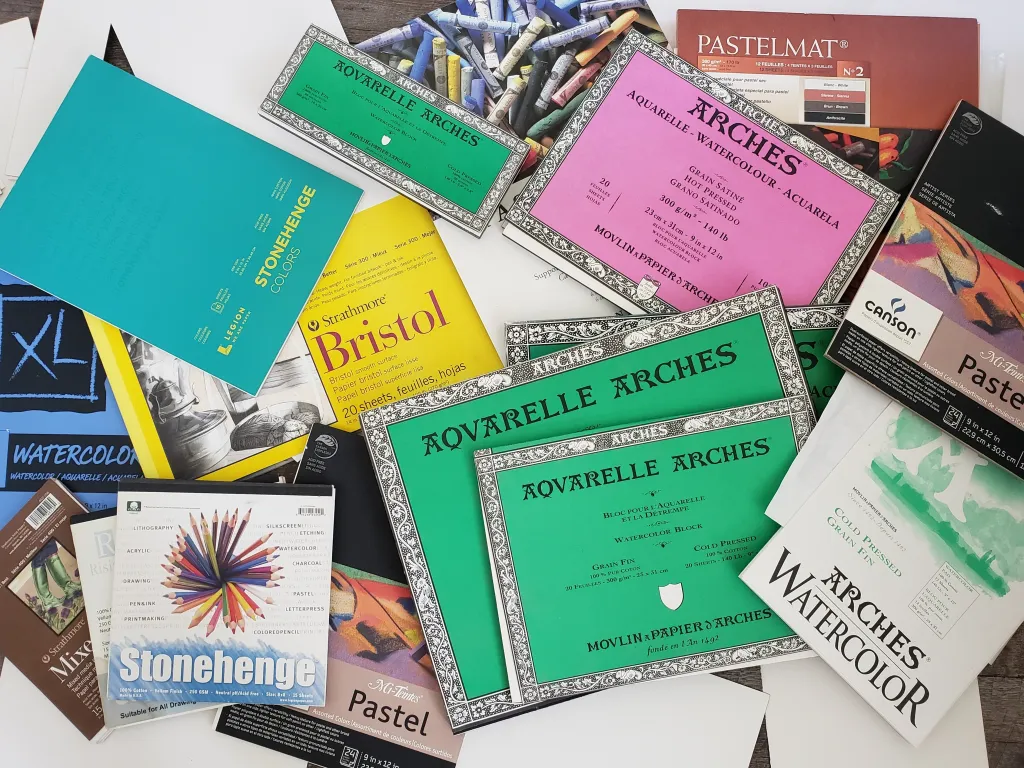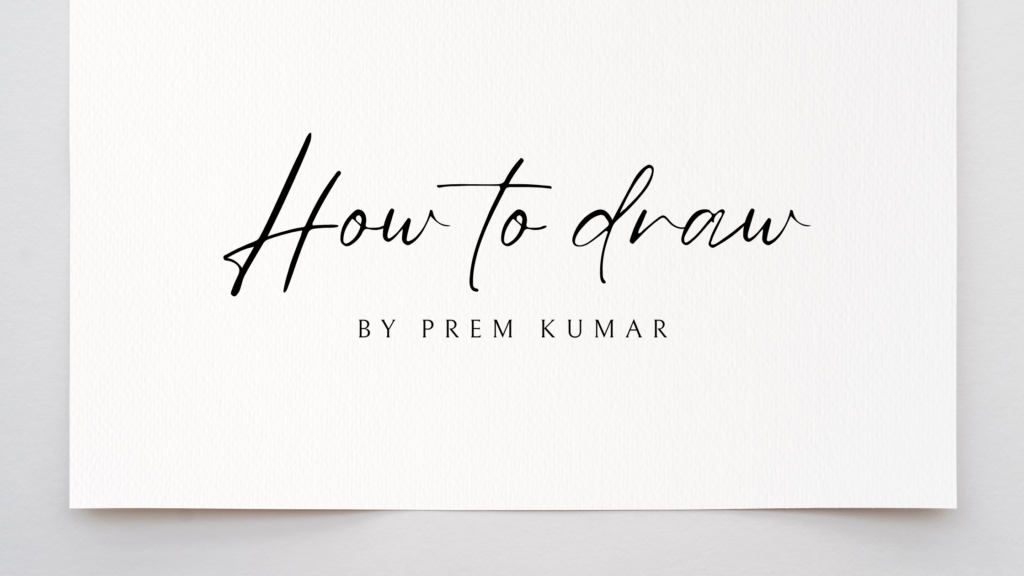Papers Selection is similar to choosing the ideal location for an artistic performance. The correct paper sets the stage for your creativity, influencing the overall impression, weight, and texture of any artistic work. Exploring the abundance of artist papers on the market may be thrilling and intimidating at the same time. Through an extensive examination of the wide range of artist papers, this thorough guide will enable you to make well-informed judgments that align with your artistic vision.
Drawing Papers:
– Sketch Paper: Designed for initial concept sketches, this lightweight and cost-effective paper is perfect for brainstorming and rough drafts.
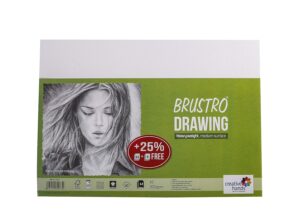
– Charcoal Paper: Tailored specifically for charcoal and pastel work, these papers often boast a textured surface that securely holds the medium, facilitating depth and expression.
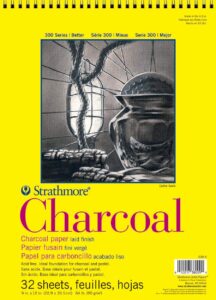
Watercolor Papers:
– Hot Pressed: Featuring a smooth surface ideal for intricate detail work, making it an excellent choice for precision-oriented artists.
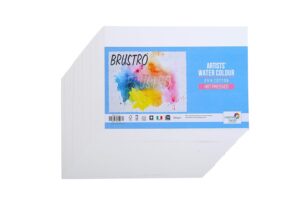
– Cold Pressed: Offering a textured surface, this type of paper is a versatile option, accommodating various watercolor techniques with grace.
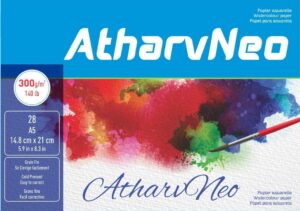
– Rough Paper: The most textured among watercolor papers, it invites experimental work and creates unique effects, adding a distinctive character to your art.
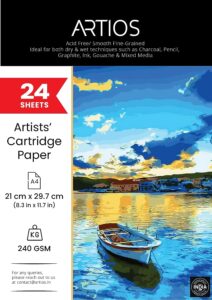
Papers for pastels:
– Sanded Paper: This type of paper has a rough surface that sticks to pastel particles well, making it easier to apply many layers and blend them seamlessly.

– Velour Paper: Distinguished by its velvety surface, this paper is ideal for soft pastels since it can store and exhibit pigment in an elegant manner.

Oil and Acrylic Papers:
– Canvas Paper: With a texture that mimics that of canvas, this kind is perfect for oil and acrylic painting practice or experimentation because it provides a comfortable surface for these materials.
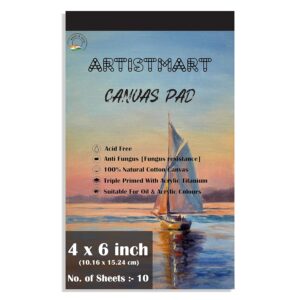
– Linen Paper: Offering a surface similar to that of linen canvas, this elegant option allows for complex depth and detail in more formal and polished compositions.
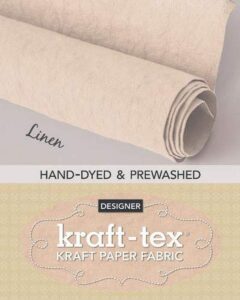
Printmaking Papers:
– Laid Paper: Featuring a textured surface and fine lines, this paper is ideal for printmaking methods like engraving and etching, giving the final prints a distinct personality.
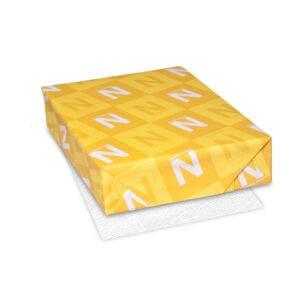
– Japanese paper (Washi): Preferred for woodblock printing because of its high caliber and longevity, this paper is noted for its strength and absorbency.
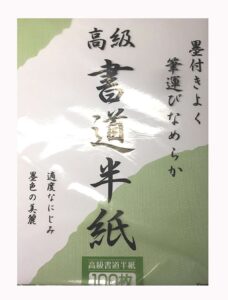
Mixed Media Papers:
– Heavyweight Paper: A dependable canvas for mixed media projects, this adaptable and sturdy alternative accepts a variety of materials, including watercolour and acrylics.
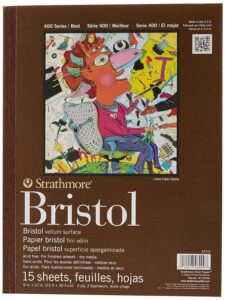
– Illustration Board: Combining paper and board, this kind provides a stiff surface for works created with mixed media, encouraging creativity and a wide range of artistic expressions.
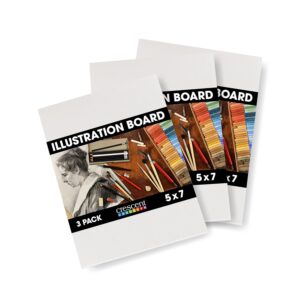
Specialty Papers:
– Handmade Paper: Known for its distinctly uneven surface, this type of paper is frequently used for particular artistic endeavors, giving the artwork a natural, individual touch.
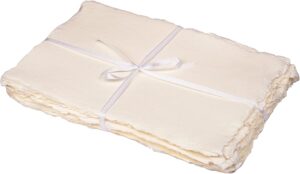
– Coloured Paper: Adding a distinctive touch to artworks, coloured paper expands creative possibilities when working with mixed media, enhancing the piece’s overall effect.
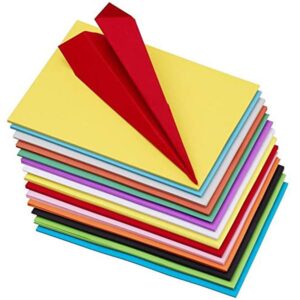
It’s important to take into account a number of criteria, including weight, texture, composition, and size when selecting the ideal paper for your artwork. The paper’s longevity is determined by its weight, and its texture and composition greatly affect how well it works with various media. Furthermore, the paper’s absorbency and response to wet media, such as watercolour, are influenced by its size.
Conclusion
The best paper for your artwork depends on your preferred medium, style, and the specific effects you aim to achieve. Experimenting with a variety of papers will help you discover which best aligns with your creative vision. Remember, the paper isn’t merely a surface; it’s an integral part of your artistic journey. Invest time in exploring different types of papers and their unique characteristics. Your choice of paper can elevate your artistic vision, making your creations resonate more deeply with your audience.
To learn more about art, visit SILPAVAT.IN

